Reasons Why Your Pool Water Quality Is So Important
Swimming pools are synonymous with relaxation, entertainment, and a sense of luxury right in your backyard. But to fully enjoy these benefits, pool owners must come to grips with a crucial reality—the quality of your pool water is paramount. What may seem like an aesthetic element, that sparkling blue water, is actually a critical factor in the health of swimmers, the longevity of your pool, and more. In this enlightening piece, we’ll take you on a deep dive into the far-reaching importance of maintaining optimal pool water quality.
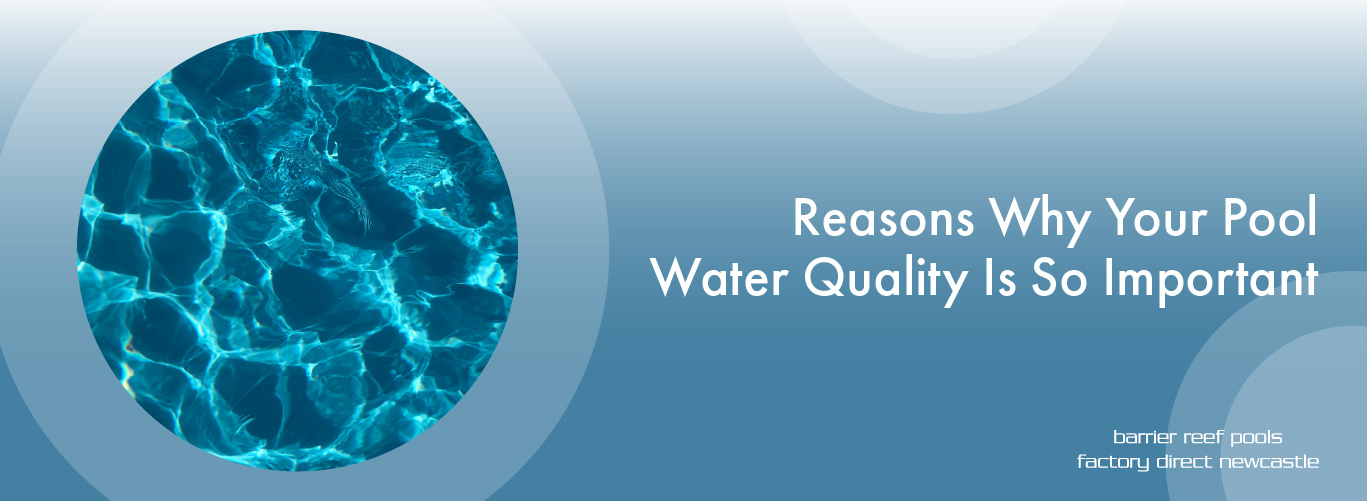
The Health Impact
The most critical reason for upholding excellent water quality is paramount for health reasons. When pool water is not properly maintained, it can become a breeding ground for harmful bacteria, algae, and various pathogens. These contaminants can result in a wide array of health problems, spanning from mild skin irritations to severe and potentially life-threatening illnesses. Taking proactive steps to ensure water quality is not only beneficial for maintaining a safe and enjoyable swimming environment but also for safeguarding the well-being of swimmers.
Waterborne Maladies
Waterborne illnesses are unfortunately quite prevalent, with a significant number arising from exposure to contaminated pool water. These illnesses can present as skin rashes, ear infections, or even more serious issues linked to gastrointestinal discomfort caused by the accidental ingestion of pool water. It is crucial to maintain proper hygiene and pool sanitation to reduce the risk of contracting such illnesses.
The Chlorine Balance
Balancing the chlorine levels in your pool is akin to mastering a delicate dance of precision and care. An inadequate amount may fail to effectively rid the water of bacteria, potentially jeopardising swimmers’ health. Conversely, an excess of chlorine can lead to unpleasant side effects such as red eyes, skin irritation, and respiratory discomfort. Striking that perfect balance is not just a task; it’s a crucial step towards ensuring the well-being and enjoyment of those taking a dip in your pool.
The Aesthetic Effect
Beyond the health concerns, water quality drastically affects the aesthetic appeal of your pool. Cloudiness, discolouration, and the growth of algae and other microorganisms can make your pool uninviting and unsightly.
Clear and Clean Water
This is the dream for many pool owners – a stunningly beautiful pool with crystal-clear waters that beckon for a refreshing swim on a sunny day. However, reaching and upholding this vision requires more than just surface-level beauty; it’s about creating a secure and welcoming environment that enhances the enjoyment of every swimmer.
Algae and Its Impact
Algae, the foe of crystal-clear pool water, can quickly establish itself, tainting the water’s purity while creating a treacherous, slippery surface that poses risks of accidents and injuries. Ensuring your pool remains free of algae is not only crucial for maintaining a visually appealing environment but is also a fundamental safety precaution that cannot be overlooked.
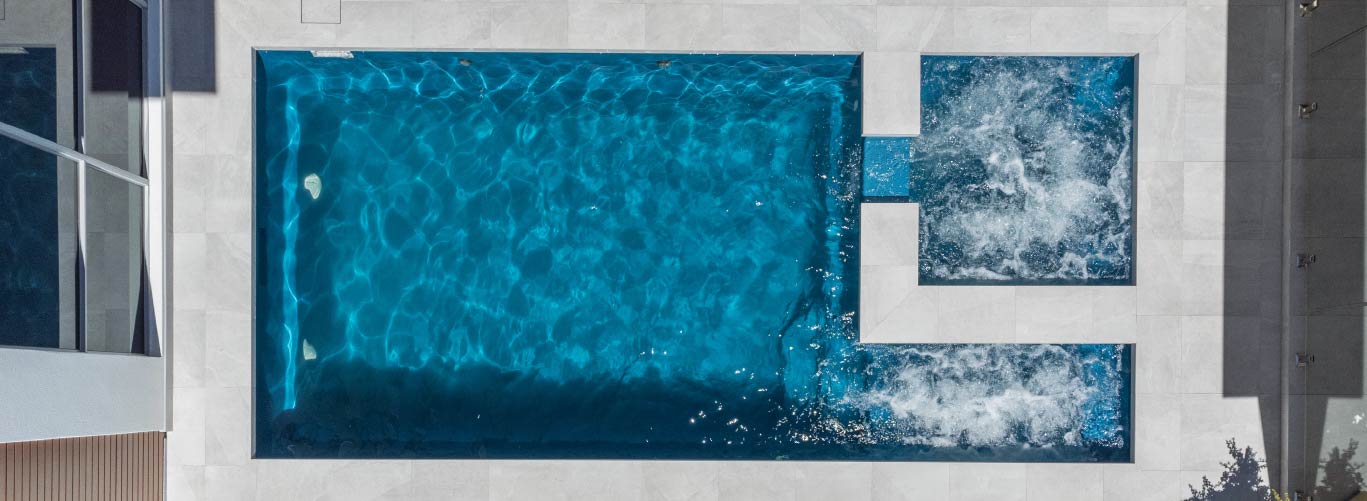
The Structural Implications
The components of your pool, from the liner to the various plumbing systems, are designed to last, but can be vulnerable to the corrosive effects of poor water quality. Regular water testing can reveal if pH levels, alkalinity, or calcium hardness are causing damage.
Corrosion and Surface Damage
Corrosion, typically associated with improper water chemistry such as high acidity or low alkalinity, can gradually weaken the structural integrity of your pool. This chemical deterioration affects not only the internal components but also the surface materials like tiles and edgings, which are susceptible to damage. Ignoring these signs of corrosion may result in extensive and expensive repairs, highlighting the importance of timely maintenance and monitoring to preserve the longevity of your pool infrastructure.
Extending Pool Life
Conversely, one crucial aspect to consider for prolonging the life of your pool is the maintenance of proper water quality. Ensuring the water is balanced and free from impurities can significantly impact the longevity of your pool. By preventing corrosive effects and damage caused by poor water quality, you not only preserve the value of your investment but also reduce the likelihood of facing substantial financial burdens for future maintenance. This proactive approach not only safeguards your pool but also contributes to your peace of mind knowing that your pool is well-cared for and will provide enjoyment for years to come.
Factors Affecting Pool Water Quality
To maintain the best quality of your pool water, it is crucial to have a comprehensive understanding of the multitude of factors that can affect it. Let’s explore in-depth some of the key considerations that will guarantee your pool water stays sparkling clear and creates an inviting ambiance for a delightful and refreshing swimming experience.
pH Balance
The pH level of your pool water dictates how acidic or alkaline it is. An incorrect pH balance can lead to a host of problems, from swimmer discomfort to long-term damage.
Alkalinity and Hardness
Alkalinity acts as a buffer for pH levels, while hardness (calcium and magnesium content) affects the feel of the water and the potential for scale buildup.
Sanitation
The primary methods of pool sanitation, like chlorine and bromine, are the first line of defence against waterborne contaminants. Ensuring these levels are adequate is fundamental.
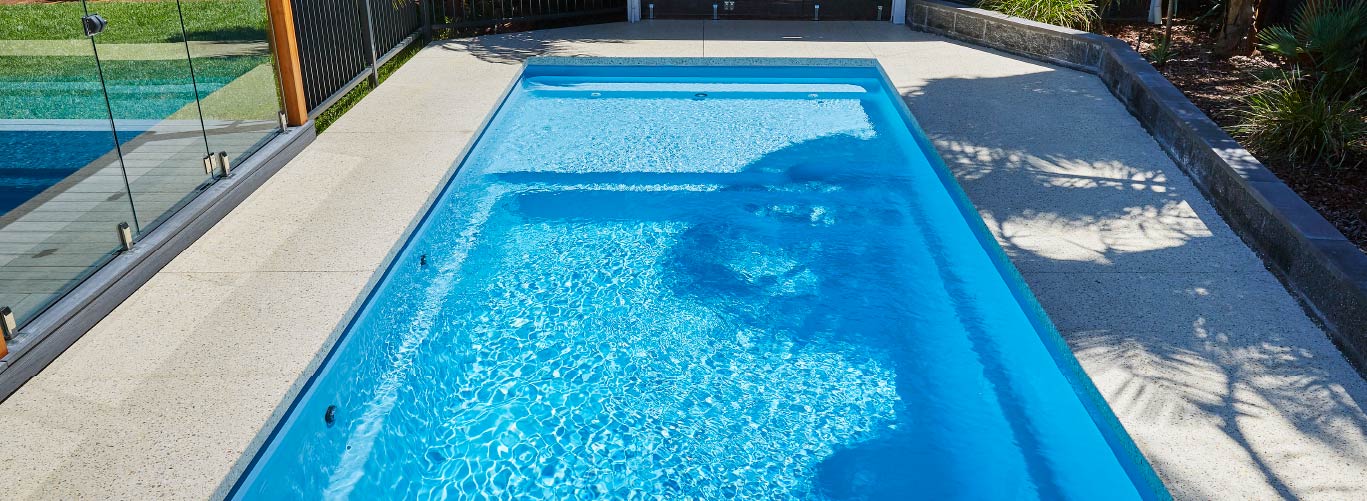
The Importance of Regular Maintenance
Understanding the factors at play is one step; committing to a routine that addresses them is another level of diligence. Regular maintenance is non-negotiable if you want to keep your pool water at its best.
Testing and Treating
Regularly testing your pool water is imperative. Once you know what needs adjusting, act swiftly to correct any irregularities. This involves adding chemicals, cleaning filters, and other interventions to maintain the water’s balance.
Seasonal Adjustments
Pool care is not one-size-fits-all. Adjusting for seasonal changes, like temperature extremes or heavy usage during summer, ensures your pool’s water remains at its healthiest.
Conclusion
The significance of upholding the quality of your pool water cannot be overstated. It serves a multifaceted purpose, influencing not only the well-being of swimmers but also the overall durability of your pool structure. By acquiring a solid foundational knowledge, embracing a meticulous approach to water maintenance, and periodically engaging in professional water testing services, you can ensure that your pool continues to serve as a safe sanctuary for many years to come. This dedication goes beyond mere water upkeep; it signifies an investment in the joy and welfare of everyone who takes pleasure in the pool’s presence. Remember, a well-maintained pool not only enhances the aesthetic appeal of your property but also contributes to a healthier and more enjoyable swimming experience for all.
Reasons Why Your Pool Water Quality Is So Important
Swimming pools are synonymous with relaxation, entertainment, and a sense of luxury right in your backyard. But to fully enjoy these benefits, pool owners must come to grips with a crucial reality—the quality of your pool water is paramount. What may seem like an aesthetic element, that sparkling blue water, is actually a critical factor in the health of swimmers, the longevity of your pool, and more. In this enlightening piece, we’ll take you on a deep dive into the far-reaching importance of maintaining optimal pool water quality.
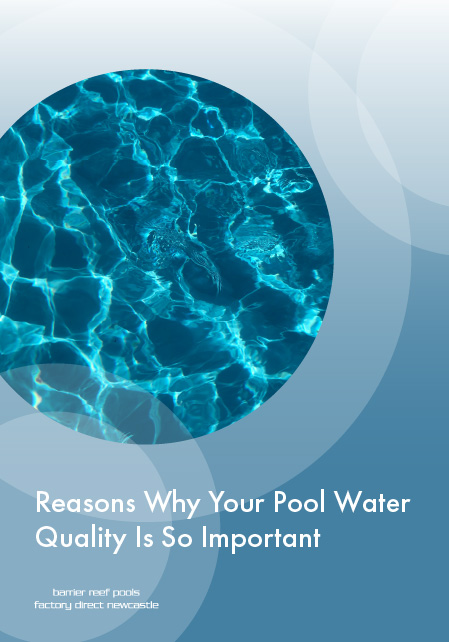
The Health Impact
The most critical reason for upholding excellent water quality is paramount for health reasons. When pool water is not properly maintained, it can become a breeding ground for harmful bacteria, algae, and various pathogens. These contaminants can result in a wide array of health problems, spanning from mild skin irritations to severe and potentially life-threatening illnesses. Taking proactive steps to ensure water quality is not only beneficial for maintaining a safe and enjoyable swimming environment but also for safeguarding the well-being of swimmers.
Waterborne Maladies
Waterborne illnesses are unfortunately quite prevalent, with a significant number arising from exposure to contaminated pool water. These illnesses can present as skin rashes, ear infections, or even more serious issues linked to gastrointestinal discomfort caused by the accidental ingestion of pool water. It is crucial to maintain proper hygiene and pool sanitation to reduce the risk of contracting such illnesses.
The Chlorine Balance
Balancing the chlorine levels in your pool is akin to mastering a delicate dance of precision and care. An inadequate amount may fail to effectively rid the water of bacteria, potentially jeopardising swimmers’ health. Conversely, an excess of chlorine can lead to unpleasant side effects such as red eyes, skin irritation, and respiratory discomfort. Striking that perfect balance is not just a task; it’s a crucial step towards ensuring the well-being and enjoyment of those taking a dip in your pool.
The Aesthetic Effect
Beyond the health concerns, water quality drastically affects the aesthetic appeal of your pool. Cloudiness, discolouration, and the growth of algae and other microorganisms can make your pool uninviting and unsightly.
Clear and Clean Water
This is the dream for many pool owners – a stunningly beautiful pool with crystal-clear waters that beckon for a refreshing swim on a sunny day. However, reaching and upholding this vision requires more than just surface-level beauty; it’s about creating a secure and welcoming environment that enhances the enjoyment of every swimmer.
Algae and Its Impact
Algae, the foe of crystal-clear pool water, can quickly establish itself, tainting the water’s purity while creating a treacherous, slippery surface that poses risks of accidents and injuries. Ensuring your pool remains free of algae is not only crucial for maintaining a visually appealing environment but is also a fundamental safety precaution that cannot be overlooked.

The Structural Implications
The components of your pool, from the liner to the various plumbing systems, are designed to last, but can be vulnerable to the corrosive effects of poor water quality. Regular water testing can reveal if pH levels, alkalinity, or calcium hardness are causing damage.
Corrosion and Surface Damage
Corrosion, typically associated with improper water chemistry such as high acidity or low alkalinity, can gradually weaken the structural integrity of your pool. This chemical deterioration affects not only the internal components but also the surface materials like tiles and edgings, which are susceptible to damage. Ignoring these signs of corrosion may result in extensive and expensive repairs, highlighting the importance of timely maintenance and monitoring to preserve the longevity of your pool infrastructure.
Extending Pool Life
Conversely, one crucial aspect to consider for prolonging the life of your pool is the maintenance of proper water quality. Ensuring the water is balanced and free from impurities can significantly impact the longevity of your pool. By preventing corrosive effects and damage caused by poor water quality, you not only preserve the value of your investment but also reduce the likelihood of facing substantial financial burdens for future maintenance. This proactive approach not only safeguards your pool but also contributes to your peace of mind knowing that your pool is well-cared for and will provide enjoyment for years to come.
Factors Affecting Pool Water Quality
To maintain the best quality of your pool water, it is crucial to have a comprehensive understanding of the multitude of factors that can affect it. Let’s explore in-depth some of the key considerations that will guarantee your pool water stays sparkling clear and creates an inviting ambiance for a delightful and refreshing swimming experience.
pH Balance
The pH level of your pool water dictates how acidic or alkaline it is. An incorrect pH balance can lead to a host of problems, from swimmer discomfort to long-term damage.
Alkalinity and Hardness
Alkalinity acts as a buffer for pH levels, while hardness (calcium and magnesium content) affects the feel of the water and the potential for scale buildup.
Sanitation
The primary methods of pool sanitation, like chlorine and bromine, are the first line of defence against waterborne contaminants. Ensuring these levels are adequate is fundamental.
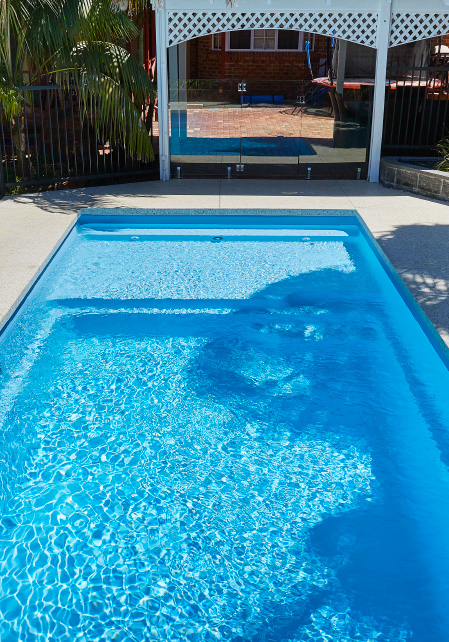
The Importance of Regular Maintenance
Understanding the factors at play is one step; committing to a routine that addresses them is another level of diligence. Regular maintenance is non-negotiable if you want to keep your pool water at its best.
Testing and Treating
Regularly testing your pool water is imperative. Once you know what needs adjusting, act swiftly to correct any irregularities. This involves adding chemicals, cleaning filters, and other interventions to maintain the water’s balance.
Seasonal Adjustments
Pool care is not one-size-fits-all. Adjusting for seasonal changes, like temperature extremes or heavy usage during summer, ensures your pool’s water remains at its healthiest.
Conclusion
The significance of upholding the quality of your pool water cannot be overstated. It serves a multifaceted purpose, influencing not only the well-being of swimmers but also the overall durability of your pool structure. By acquiring a solid foundational knowledge, embracing a meticulous approach to water maintenance, and periodically engaging in professional water testing services, you can ensure that your pool continues to serve as a safe sanctuary for many years to come. This dedication goes beyond mere water upkeep; it signifies an investment in the joy and welfare of everyone who takes pleasure in the pool’s presence. Remember, a well-maintained pool not only enhances the aesthetic appeal of your property but also contributes to a healthier and more enjoyable swimming experience for all.


